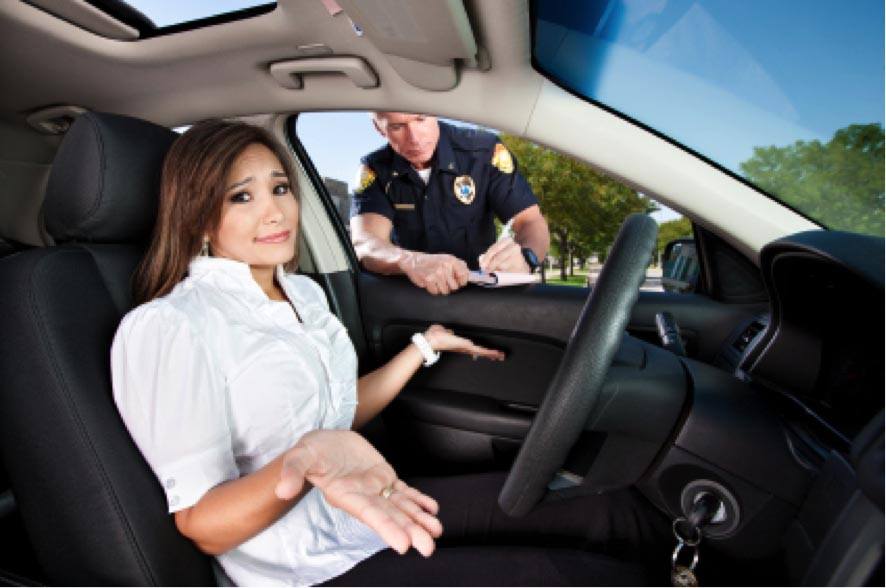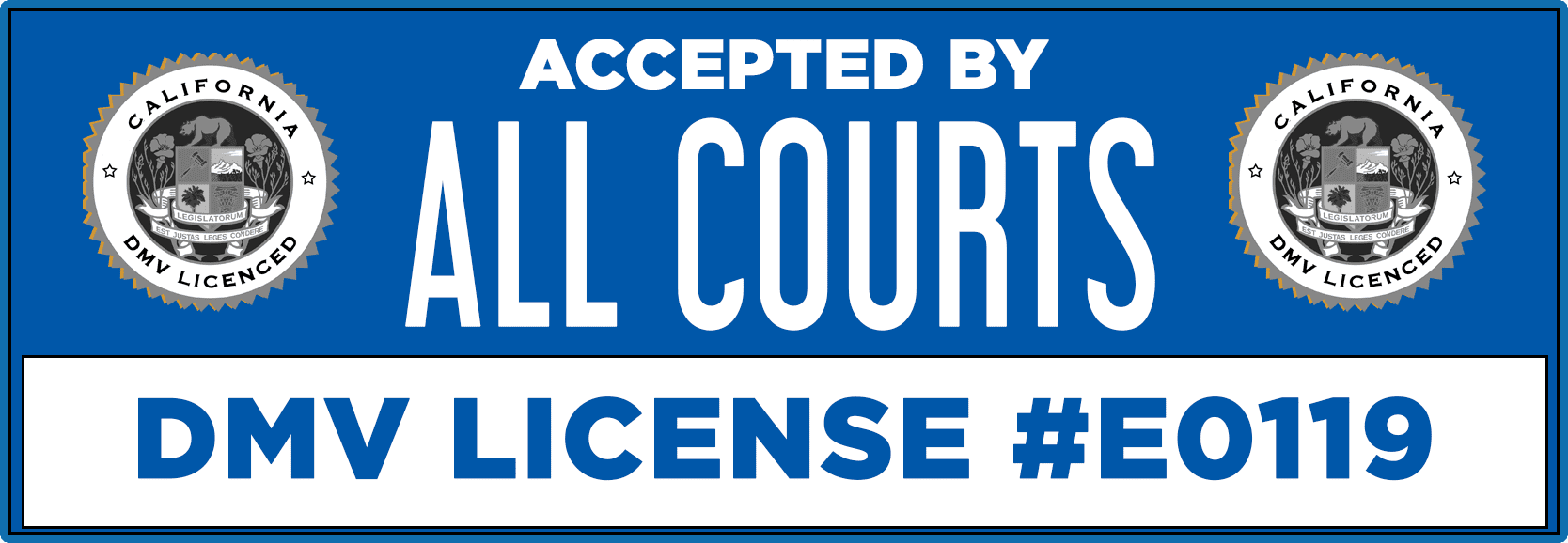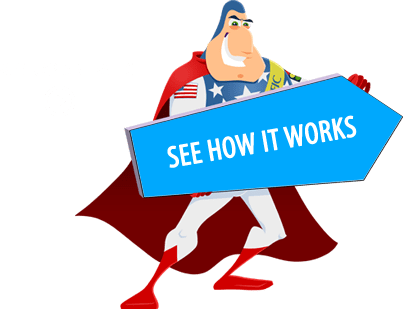How Much Does a Speeding Ticket Cost?

Traffic fines in California are difficult to pinpoint due to additional penalty assessment fees and surcharges that vary by county. Consequently, a ticket with a $35 base fine may actually cost you $146. For help with fee explanations contact the county court listed on your citation.
Factors That Will Increase Your Speeding Ticket Costs in California
Several factors can significantly increase the cost of your speeding ticket in California. Here’s a comprehensive list of all factors, including additional details and consequences:
1. Speed Over the Limit
- Speed Differential: The higher your speed over the limit, the greater the base fine. For instance, speeding 1-15 mph over the limit has a lower base fine compared to speeding 26 mph or more over the limit.
- Extreme Speeding: Driving more than 100 mph can lead to higher fines, mandatory court appearances, and possible license suspension.
2. Location of the Violation
- School Zones: Speeding in a school zone can result in doubled fines and additional penalties.
- Construction Zones: Fines are often higher in construction zones to protect workers.
- High-Risk Areas: Speeding in high-risk areas like residential neighborhoods or hospitals will result in higher fines.
3. Additional Infractions
- Reckless Driving: If you’re cited for reckless driving, the fines and penalties will increase substantially.
- DUI (Driving Under the Influence): Combining a speeding ticket with a DUI charge will result in severe penalties, including higher fines, potential jail time, and license suspension.
- Other Violations: Any additional traffic violations, such as running a red light or driving without insurance, will increase the overall cost and penalties.
4. Prior Driving Record
- Repeat Offenses: A history of speeding or multiple moving violations will result in higher fines. Repeat offenders are more likely to face harsher penalties, including longer license suspensions.
- Negligent Operator Treatment System (NOTS): Under California’s NOTS, accumulating points on your driving record through multiple infractions can lead to increased fines and possible license suspension.
5. Court Fees and Penalties
- Court Costs: If you contest your ticket and lose, you may be responsible for additional court costs.
- Administrative Fees: The court may impose additional fees for processing the ticket and related paperwork, which can add to the total cost.
6. Surcharges and Assessments
- State and County Penalty Assessments: California imposes state and county penalty assessments on top of the base fine. These are calculated per $10 of the base fine, significantly increasing the overall cost.
- Emergency Medical Services (EMS) Fee: A fee added to the base fine to support emergency medical services.
7. Insurance Premium Increases
- Insurance Rates: Speeding tickets lead to higher insurance premiums. In California, even a single speeding ticket can increase your annual insurance costs by hundreds of dollars.
8. Special Circumstances
- Speed Contests or Exhibitions: Engaging in speed contests or reckless exhibitions of speed can lead to hefty fines, vehicle impoundment, and potential jail time.
- License Points: Accumulating points for speeding can lead to further financial penalties and the risk of losing your license if too many points are accumulated within a specific period.
Breakdown of Speeding Ticket Costs
Surcharges
The state charges a 20% surcharge on all traffic tickets. This means, for example, a $40 fine will incur a surcharge of $8.
List of Other Additional Fees
- State Penalty Assessment
- County Penalty Assessment
- Court Facility Construction Penalty Assessment
- DNA Identification Fund Penalty Assessment
Emergency Medical Services (EMS) Penalty Assessment
Auto Insurance Rate Increase
Depending on the infraction, points may be added to your driving record, resulting in a jump in your car insurance rates. Should this be the case, you always have the option to shop online and compare car insurance rates.
California Traffic Ticket Penalties
Penalties, unlike fines, are uniform throughout the state. This means you’ll face the same penalty regardless if you’re ticketed in Orange county or Humboldt county. Penalties include points added to your driving record and the suspension or revocation of your California driver’s license. There are, however, penalty variations based on license type. A permit holder, for example, will face different speeding penalties than say a driver carrying a CDL.
California Point System
A conviction for a moving traffic violation will bring points to your driving record. The severity of the infraction determines how long the point or points remain on your driving record. In some situations, the court may mask points in exchange for completing a court approved traffic school program.
California assigns points based on the violation:
- 1 point is assigned to violations like speeding, making an unsafe lane change or an at-fault accident.
- Two points are assigned for more serious violations like reckless driving, hit-and-run, DUI or driving with a suspended or revoked license.
CA Driver’s License Suspension, Revocation, Cancellation
Not all convictions lead to a suspended, revoked or canceled driver’s license. To keep you in the know, these three terms are defined as such:
License Suspension―The temporary loss of driving privileges. License Revocation―The termination of a person’s driving privileges. A new driver’s license may be obtained after the period of revocation. License Cancellation―The termination of a person driver’s license. Any person whose license has been canceled may immediately apply for a new license.
A high number of traffic tickets and/or points could lead to the suspension or revocation of your California driver’s license. As is, the CA DMV will suspend your driver’s license for accumulating 4 points or more in 12 months.
A court judge may suspend your driver’s license, regardless of point count, if convicted of one of the following:
- Driving under the influence of alcohol or drugs
- Failure to stop as required at a railway grade crossing
- Driving above the posted speed limit
- Reckless driving
- Hit-and-run
- Engaging in lewd conduct and prostitution in a vehicle within 1,000 feet of a residence
- Assaulting a driver, bicyclist or pedestrian on a highway (road rage)
- Any felony or misdemeanor offense
- Fleeing a law enforcement officer
Penalties for Drivers Younger Than 21
Drivers 21 years old or younger have less leeway. In addition to the violation listed above, the court and/or DMV will suspend your driving privileges:
- If you receive a traffic ticket and fail to appear in court
- If you get a traffic ticket and fail to pay the fine
- If you have a 3rd at-fault collision or conviction (or any combination) within 12 months
- If you are convicted of using alcohol or a controlled substance
- If you are between 13 and 18 years old and convicted of being a habitual truant from school
Penalties for California Commercial Drivers
You must notify your employer within 30 days of conviction of any traffic violations (this does include parking tickets). Even if you get ticketed while driving your own car, you still must notify your employer. If the conviction occurs out-of-state, use a Report of Out-of-State Traffic Conviction by a Commercial Driver (Form DL 535) to notify your employer.
CDL Points and Violations on Driving Record
Any violation you receive while operating a commercial vehicle carries one and one-half the normal point count. Plus, many of these violations will remain on your driving record for extended periods of time. Some of the longer violations include:
- Major violations (DUI, hit-and-run)―55 years
- Out-of-service violations―15 years
- Collisions―10 years
- Railroad grade crossings―4 years
First Offenses
You will lose your CDL for 1 year for the following first offenses:
- First conviction for a DUI―1 year
- BAC of 0.04% or higher while operating a commercial vehicle―1 year
- Refusing a DUI test―one year
- Leaving the scene of an accident―1 year
- Driving a commercial vehicle with a suspended, revoked or cancelled CDL―1 year
- Negligent driving causing a fatality―1 year
- Using vehicle in felony involving a controlled substance―1 year
Serious Traffic Violations
Some of these include reckless driving, following too closely, driving 15 MPH or more above the posted speed limit, improper lane change and driving a commercial vehicle without the proper class CDL and/or endorsement. A conviction of any of these violations will result in the loss of driving privileges for:
- 60 days for a second conviction of any of these offenses within a three-year period
- 120 days for a third or subsequent conviction of any of these offenses within a three-year period
CDL Disqualifications
You will be disqualified from operating a commercial vehicle for life if convicted a second time for any of the following offenses:
- DUI
- Leaving the scene of an accident
- Refusing a DUI test
- A BAC of 0.04% or higher while operating a commercial vehicle
- Driving under the influence of a controlled substance
- Negligent driving causing a fatality
Driving a commercial vehicle with a revoked, suspended or canceled CDL
Calculating Your Speeding Ticket Cost in California
When you receive a speeding ticket in California, the cost can vary depending on how much you exceed the speed limit and other factors like additional fees and surcharges. Here’s how to calculate the total cost of your speeding ticket.
Base Fines
The base fine for speeding tickets in California is determined by how many miles per hour (mph) you were driving over the speed limit:
- 1-15 mph over the limit: $35 base fine
- 16-25 mph over the limit: $70 base fine
- 26 mph or more over the limit: $100 base fine
Additional Fees and Surcharges
In addition to the base fine, several fees and surcharges are added to the total cost of the ticket:
- State Penalty Assessment: $10 for every $10 of the base fine.
- County Penalty Assessment: $7 for every $10 of the base fine.
- Court Operations Fee: $40.
- Conviction Assessment Fee: $35.
- EMS (Emergency Medical Services) Fee: $5 for every $10 of the base fine.
Example Calculations
Example 1: Speeding 10 mph over the limit
- Base Fine: $35.
- State Penalty Assessment: $35 (10 x $3.50).
- County Penalty Assessment: $24.50 (7 x $3.50).
- Court Operations Fee: $40.
- Conviction Assessment Fee: $35.
- EMS Fee: $17.50 (5 x $3.50).
Total Cost: $187.
Example 2: Speeding 20 mph over the limit
- Base Fine: $70.
- State Penalty Assessment: $70 (10 x $7).
- County Penalty Assessment: $49 (7 x $7).
- Court Operations Fee: $40.
- Conviction Assessment Fee: $35.
- EMS Fee: $35 (5 x $7).
Total Cost: $299.
This example illustrates how quickly the cost of a speeding ticket can increase with additional penalties and fees, so always drive within speed limits and keep your record clean.
Is a Speeding Ticket a Misdemeanor Or a Felony?
In California, a speeding ticket is typically classified as an infraction, not a misdemeanor or a felony. Infractions are less severe offenses and generally result in fines and points on your driving record rather than criminal charges.
However, certain extreme cases of speeding can escalate the offense to a misdemeanor. For instance:
- Excessive Speed: Driving over 100 mph can be charged as a misdemeanor, especially if it involves reckless driving.
- Reckless Driving: If speeding is combined with reckless behavior that endangers the safety of others, it can be considered a misdemeanor.
Felonies related to speeding are very rare and usually involve additional serious offenses, such as vehicular manslaughter or repeated severe violations that significantly endanger public safety.
For the majority of speeding violations, the ticket will be treated as an infraction, leading to fines and possible points on your driving record rather than criminal charges.
Options After You Receive a Speeding Ticket in CA
A motor vehicle can be a safe mode of transportation or a lethal weapon, depending on how it is used. If you want to properly educate yourself on driving your car, complete our traffic school online today. The program is ComedyTrafficSchool.com. Take online traffic school the fun way with our award-winning course. Our traffic school course is the perfect choice for anyone recently receiving a traffic ticket; keep your driving record clean, keep your auto insurance rates low, and become a better, safer driver!
Is It Worth Fighting a Speeding Ticket In California?
Deciding whether to fight a speeding ticket in California depends on several factors, including the circumstances of the ticket, potential consequences, and your likelihood of success. Here are some considerations to help determine if it’s worth fighting a speeding ticket:
Reasons to Fight a Speeding Ticket
- Incorrect Speed Measurement: If you believe the speed measurement was incorrect due to faulty equipment or improper use by the officer, contesting the ticket might be worthwhile.
- Justifiable Reason for Speeding: If you had a valid reason for speeding, such as a medical emergency, you might have a strong case.
- No Visible Speed Limit Signs: If the area where you were ticketed lacked clear speed limit signs, you might argue that you were unaware of the speed limit.
- Potential for Reduced Penalties: In some cases, fighting the ticket can lead to reduced fines or points, even if you don’t ultimately win the case.
- Impact on Insurance and Driving Record: A successful challenge could prevent points on your record and avoid higher insurance premiums.
Process and Considerations
- Court Appearance: Fighting a ticket will require at least one court appearance, which means taking time off work or other commitments.
- Legal Fees: If you hire an attorney, consider the cost of legal fees compared to the potential savings from reduced fines and insurance rates.
- Probability of Success: Assess the strength of your evidence and arguments. If the evidence against you is strong, it might be challenging to win.
- Traffic School Option: In some cases, attending traffic school might be a more straightforward way to avoid points on your record without fighting the ticket.
Example Scenarios
- Strong Case: If you have clear evidence that the speed measurement was incorrect (e.g., dashcam footage, witness statements), it might be worth fighting the ticket.
- Weak Case: If you were significantly over the speed limit and there’s strong evidence against you (e.g., radar gun reading, officer testimony), it might be more practical to accept the ticket and possibly attend traffic school.
When you Enroll in a traffic school program, you will learn about the topics mentioned above and more. A motor vehicle can be a safe mode of transportation, or it can be a very dangerous weapon. If you want to learn how to increase the chances of making it to your destination in one piece, complete our traffic school online today. The program is ComedyTrafficSchool.com. Take online traffic school the fun way with our award winning course. Our traffic school course is the perfect choice for anyone who recently received a traffic ticket; keep your driving record clean, your auto insurance rates low and become a better, safer driver!





